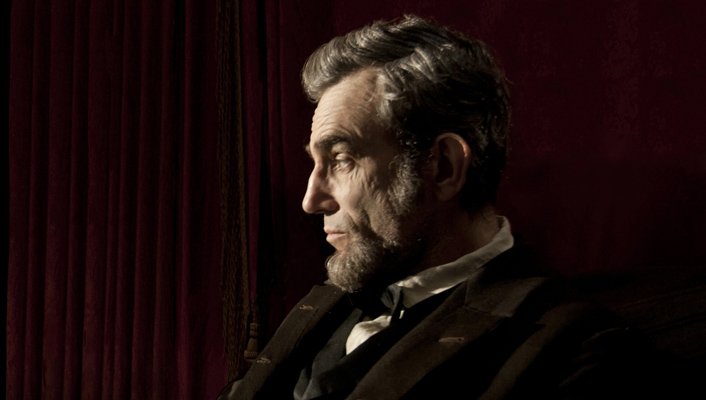Most people, when conjuring an image of Abraham Lincoln, imagine him standing before thousands of troops at Gettysburg, his voice booming out across the battlefield. Or perhaps they envision the fateful night at Ford’s Theater, when the President was assassinated during a performance of Our American Cousin. Very few people would visualize an ungainly, soft-spoken gentleman with a remarkably shrewd political mind, but this is precisely the version that Steven Spielberg seeks to explore in Lincoln.
The film focuses on the final few months of Lincoln’s presidency, as the Civil War rages on and the President works tirelessly to put an end slavery by passing the 13th Amendment, even if it means offering jobs in exchange for votes or forging a shaky alliance with hot-tempered, outspoken abolitionist Thaddeus Stevens (Tommy Lee Jones). Lincoln must also contend with an emotionally unstable wife (Sally Field) who blames him for the death of one son, while another (Joseph Gordon-Levitt) rages against his parents for refusing to allow him to fight for the Union.
In perhaps the most captivating performance of his illustrious career, Daniel Day-Lewis breathes life into the 16th President in a way no other performer could have, shambling from scene to scene and affecting a slight midwestern drawl that hints at the great man’s modest upbringing. Whether spinning a backwoods parable to a telegraph operator or roaring thunderously at the members of his cabinet, Lincoln’s vast vocabulary and appreciation for the beauty of eloquent conversation are on full display here, and we can’t help but be mesmerized by every single word.
Spielberg wisely steers clear of epic battle scenes, choosing instead to craft Lincoln as a fervent, articulate political thriller, full of carefully-planned beauracratic maneuvering and passionate speech-making. But amidst the chaos emerges a wholly human tale about a man doggedly pursuing a goal he truly believes in, and that’s something each of us can relate to.



